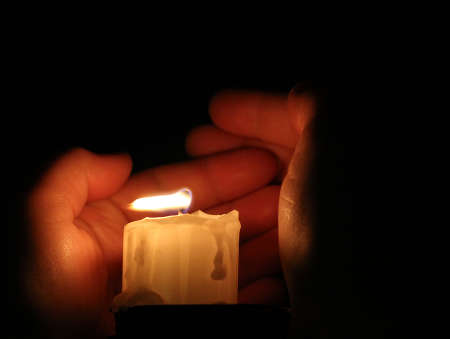I just figured out the entire Synod. Or at least, I figured out something about it! Maybe everyone else already knows this, and I’m just slow, but it kind of blew my mind.
My husband and I were talking about people in really rotten marital situations — say, a Catholic man in a valid marriage to a woman who reacted badly to the trials of life, and turned into a horrible person. When she began to abuse the kids, they got a civil divorce, and he found someone else, and they’re really in love, and she loves his kids, and they had more kids together . . . but they recently met with their priest, and it’s painfully obvious that there is no way he can get an annulment. The old marriage was a valid marriage, awful as it was. This new couple has only two choices: (a) to remain in what is truly an adulterous marriage, and to refrain from receiving Communion indefinitely, because they’re in a state of mortal sin, or (b) to live together as brother and sister and hope the old wife dies.
Either way: awful, awful, awful.
The upshot of the first documents leaking out of the Synod seem to be saying, among other things, that the Church is trying to encourage people who can’t get annulments to be part of the Church in some way — to get them back into the community somehow, without them being officially in communion with the Church.
I wondered why. I mean, why would someone want to be in the Church if they can’t receive the Eucharist? There are many wonderful things about the Church, but without the Eucharist . . . what’s the point? Who wants to hang around a restaurant if you never get to sit and eat?
And then I realized. The children. People will bring their children to be fed. If they feel welcome, and if they feel like they’re not utterly rejected, even though they can’t receive Communion, they will bring their children to Mass, and will bring their children to catechism class, and will bring their children to the sacraments. They will make sure their children stay involved in the life of the Church. Or at least they might! And there is hope for the next generation . . . and also for the cousins, who always keep up on the family news, and for the friends of the family, and for the lady in the grocery line who stop and chat about marriage and want to know all about your personal life . . .
They can tell that lady, “Well, it’s complicated, but I’m still a Catholic. There is still a place for me. It’s not what I’d wish, but it’s better than nothing. They still want me, and I still need Him.”
Whereas, if all they hear from the Church is, “Sorry. You’re out. Shame on you. Next!” then of course they will not bring their children, and their children won’t go to Mass, or catechism, or to the sacraments. Why would they? Why would anyone be a part of an organization that not only cannot give them the Bread of Life, but won’t even acknowledge that they are trying hard to be loving? And we’ll continue in this horrible cycle where people who are really trying to be decent are barred from the sacraments, but people who waltzed into marriage without thinking it through can get their marriage declared null, and it just seems so unfair, and who wants to be part of that kind of Church that punishes love and gives a do-over for foolishness? And every conversation about the Church will be about how unfair it is, and that’s why We Don’t Go There Anymore.
That’s what I mean when I say I figured out the Synod. It really wasn’t hidden! It’s all about the family. It’s always been about the family — and the family is about more than the one marriage and the one couple in question. That’s why they didn’t call it “The Synod About Gay People and Divorce” or “The Synod About Just How Popey the Pope Plans to Be, Anyway” or “The I-Don’t-Recall-Jesus-Talking-Much-About-Marriage,-Do-Youuu? Synod” Nope. Every single human being is, for better or worse, part of a family, and because of this, what we do affects lots of other people — and how we’re treated affects lots of other people, too.
It’s about future generations, and also it’s about how the faith of children can affect parents. That’s what the Church means by “mercy.” Not “anything goes, as long as we all feel good,” but “A bruised reed he will not break, and a smoldering wick he will not snuff out.” We cannot give medicine to the dead, but neither will we sign any death certificates prematurely.
It sounds like the Church intend to make it much harder for people to accidentally or frivolously go through with invalid marriages, and it sounds like they intend to offer support for valid marriages after the wedding, so that people get married for real, and stay married for good. But what about the generations of people who are already caught in an impossible situation? There have been, let’s face it, several decades of failure. People have grown up never hearing a word of doctrine from the pulpit, never learning a scrap of catechism in Catholic school, never knowing the first thing about what the Church believes about sex or marriage (or the Real Presence, or anything). They’re caught, and it’s not fair, and it stinks.
But it’s not going to help anyone to pretend that real marriages weren’t real, or that invalid marriages aren’t real. You can’t just change the rules when you feel sorry for people. That will just create more people for whom to feel sorry.
How to serve the people caught in the middle? Make a place for them, and make a place for their children. Make a place for their whole family.












